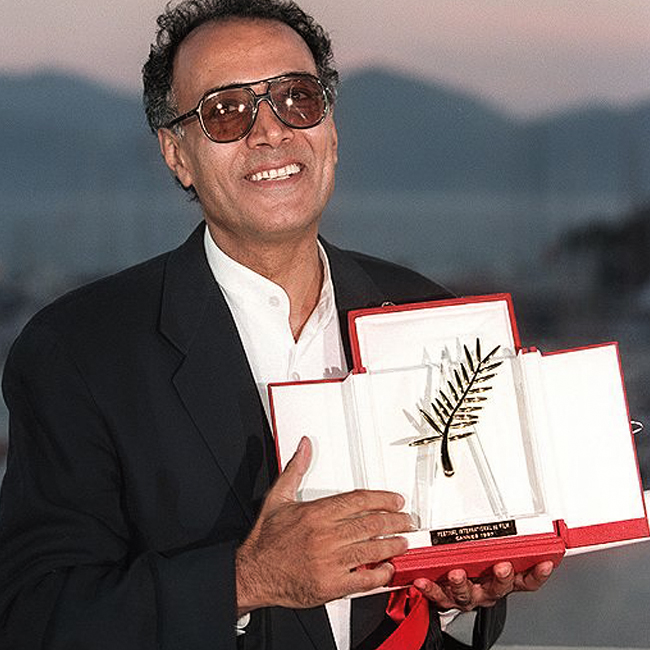

‛Abbās Kīyārustamī (June 22, 1940–July 04, 2016) was a multifaceted artist who made a lasting impression on the Iranian film industry as a director, screenwriter, photographer, and film producer. Kiarostami is renowned for his minimalistic style, which conveys the idea of exploring the complexities of human experience. His works are characterized by compelling narratives, imaginative expression, the use of non-professional actors, and an evocative use of slow cinema that employs fixed cameras and prolonged takes. He often incorporates modern Iranian poetry into his narratives and film dialogues, while dealing with themes of fact versus fiction, identity, alienation, and humanity’s complex relationship with nature. His use of child protagonists (particularly in his early films made in collaboration with Kiumars Pourahmad), specific shots and dialogues that take place inside cars, and documentary-style narratives set in rural locations create a favorable environment in which to present ideas about life and death as well as about the continuity and change of human nature.
Internationally acclaimed director, Kiarostami received prestigious awards at numerous international film festivals, notably the Palme d’Or at Cannes Film Festival for Taʿm-i gīlās (Taste of Cherry) in 1997. Kiarostami was a key figure in the Iranian New Wave cinema, with more than forty films in his body of work. Among his notable works were: Khānah-’i dūst kujāst? (Where Is the Friend’s Home? 1987), Close-Up (Namā-yi nazdīk 1990), Bād mā rā khvāhad burd (The Wind Will Carry Us 1999), and the groundbreaking Taste of Cherry (1997), the first Iranian movie to have won the Cannes’ Palme d’Or. His death in Paris at the age of 76 marked the conclusion of an era in Iranian film history, while his legacy sets his stature as one of the most influential directors in twentieth and twenty-first-century cinema.


